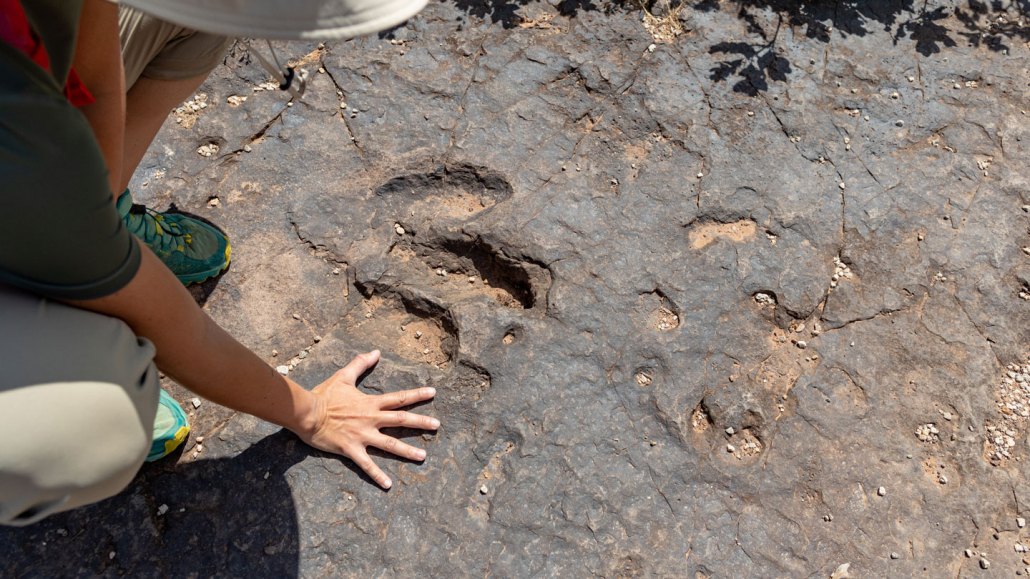basin: (in geology) A low-lying area, often below sea level. It collects water, which then deposits fine silt and other sediment on its bottom. Because it collects these materials, it’s sometimes referred to as a catchment or a drainage basin.
dinosaur: A term that means terrible lizard. These reptiles emerged around 243 million years ago. All descended from egg-laying reptiles known as archosaurs. Their descendants eventually split into two lines. For many decades, they have been distinguished by their hips. The lizard-hipped line are believed to have led to the saurischians, such as two-footed theropods like T. rex and the lumbering four-footed Apatosaurus. A second line of so-called bird-hipped, or ornithischian dinosaurs, appears to have led to a widely differing group of animals that included the stegosaurs and duckbilled dinosaurs. Many large dinosaurs died out around 66 million years ago. But some saurischians lived on. They are now the birds we see today (and who have now evolved that so-called “bird-hipped” pelvis).
environment: The sum of all of the things that exist around some organism or the process and the condition those things create. Environment may refer to the weather and ecosystem in which some animal lives, or, perhaps, the temperature and humidity (or even the placement of things in the vicinity of an item of interest).
field: An area of study, as in: Her field of research is biology. Also a term to describe a real-world environment in which some research is conducted, such as at sea, in a forest, on a mountaintop or on a city street. It is the opposite of an artificial setting, such as a research laboratory.
fossil: Any preserved remains or traces of ancient life. There are many different types of fossils: The bones and other body parts of dinosaurs are called “body fossils.” Things like footprints are called “trace fossils.” Even specimens of dinosaur poop are fossils. The process of forming fossils is called fossilization.
hadrosaur: A duck-billed, plant-eating dinosaur that lived during the late Cretaceous Era.
ichnologist: A scientist who studies trace fossils such as footprints, burrows or chew marks on bones.
information: (as opposed to data) Facts provided or trends learned about something or someone, often as a result of studying data.
marine: Having to do with the ocean world or environment.
marsh: A low-lying wetland usually covered with grasses and shrubs, not trees. It’s a prime feeding and nesting ground for waterfowl.
sediment: Material (such as stones and sand) deposited by water, wind or glaciers.
trace fossil: Evidence other than a preserved carcass or bones of ancient life. Footprints, burrows or chew marks on a bone are examples of such trace fossils. These can provide information that’s more valuable than body fossils. For instance, trace fossils can hint at a creature’s behavior. Evidence of that is usually scant.

